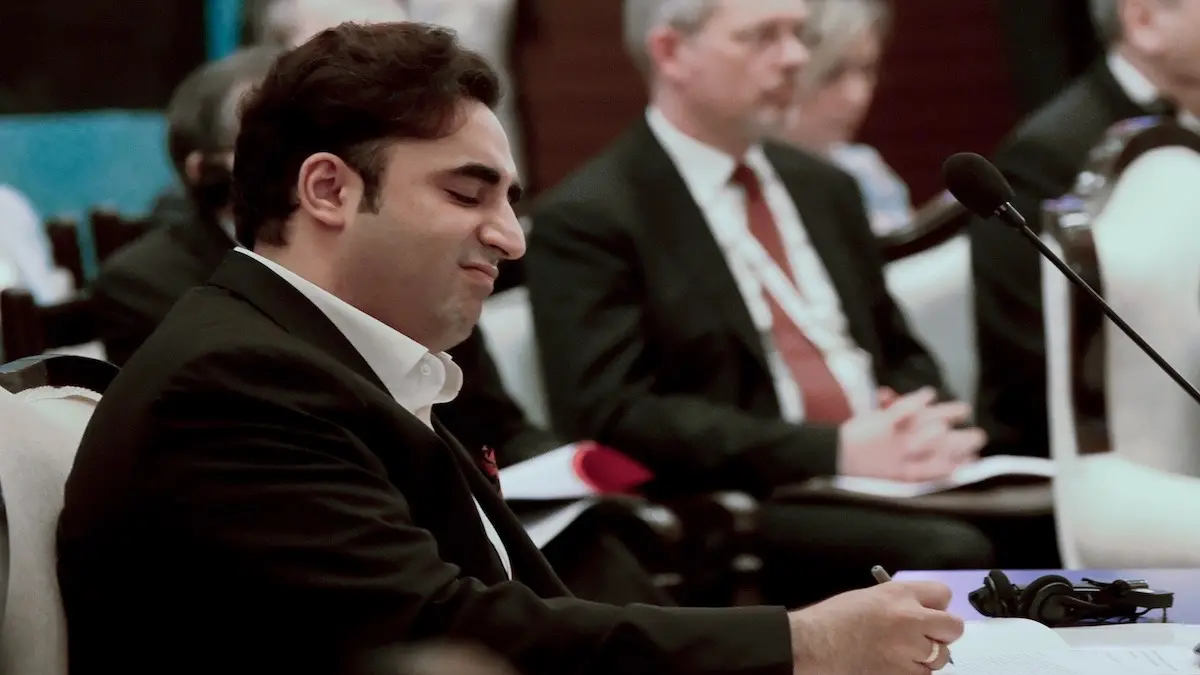Updated 18 May 2025 at 16:03 IST
Pakistan Copies India Again, to Send Bhutto Abroad After India’s Global Outreach Move
This move comes after Pakistan faced a setback during the recent four-day military clash with India from May 7 to 10, known as Operation Sindoor.
- World News
- 3 min read

New Delhi: Just a day after India launched a global diplomatic outreach sending MPs to various countries to expose Pakistan as a terror-supporting state, Pakistan has once again followed India’s example. The Pakistani government announced it will send former Foreign Minister Bilawal Bhutto Zardari abroad to present its “case for peace” on the international stage.
This move comes after Pakistan faced a setback during the recent four-day military clash with India from May 7 to 10, known as Operation Sindoor. Following this, Pakistan’s Prime Minister Shehbaz Sharif asked Bhutto to lead a delegation to speak for Pakistan in foreign capitals.
Pakistan Sends Bilawal Bhutto Zardari to Present ‘Peace Case’ Abroad
Bilawal Bhutto Zardari confirmed this on the social media platform X (formerly Twitter), saying, “I was contacted earlier today by Prime Minister Shehbaz Sharif, who requested that I lead a delegation to present Pakistan’s case for peace on the international stage. I am honoured to accept this responsibility and remain committed to serving Pakistan in these challenging times.”
India, meanwhile, has already chosen seven MPs from different political parties to lead delegations to key countries in North America, Europe, and West Asia. These delegations aim to present India’s stance on terrorism, highlighting Pakistan’s role as a terror-breeding state and focusing on the Pahalgam terror attack that led to Operation Sindoor.
Advertisement
Among India’s delegates are prominent leaders like Congress’s Shashi Tharoor, BJP’s Ravi Shankar Prasad, former Jammu and Kashmir Chief Minister Ghulam Nabi Azad, and AIMIM leader Asaduddin Owaisi.
India’s External Affairs Minister, S. Jaishankar, has clarified that India is open to talks with Pakistan only on the issue of terrorism. He emphasized that the Indus Waters Treaty will remain on hold until Pakistan stops cross-border terrorism. Additionally, the only Kashmir-related discussion India is willing to consider is Pakistan withdrawing from the parts of Jammu and Kashmir it occupies illegally.
Advertisement
The recent Operation Sindoor saw India carry out precision strikes on terrorist camps inside Pakistan, which led to a sharp escalation in military tensions. After four days of clashes involving drones, missiles, and long-range weapons, both sides agreed to halt firing on May 10.
This is not the first time Pakistan has copied India’s moves. Recently, Pakistan’s Prime Minister Shehbaz Sharif visited a military base in Sialkot, mirroring Indian Prime Minister Narendra Modi’s visit to the Adampur airbase in Punjab, where Modi interacted with troops and addressed soldiers in front of India’s S-400 air defense system — a system Pakistan had falsely claimed to have destroyed. Shehbaz Sharif also addressed Pakistani soldiers at Sialkot, claiming a victory in the brief air battle with India.
Pakistan’s imitation comes as the Modi government forms multi-party teams of parliamentarians and diplomats to travel abroad and highlight India’s stand on terrorism and regional security. These delegations represent a coordinated effort to build international support against terrorism sponsored from across the border.
In sum, Pakistan’s announcement to send Bilawal Bhutto Zardari abroad reflects its attempt to respond to India’s global diplomatic push, but it also highlights how Islamabad tends to follow New Delhi’s lead in its international messaging.
Published By : Aditi Pandey
Published On: 18 May 2025 at 08:18 IST
